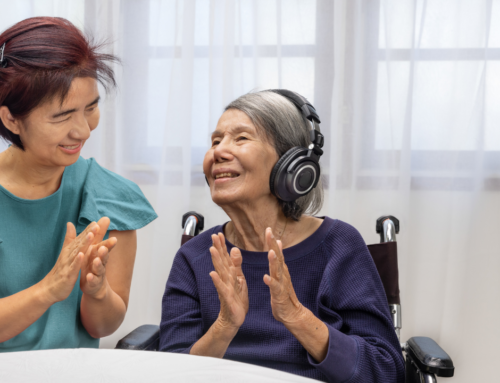Share This Story!
Aging With Mental Acuity In Tact
Many people assume that as a person ages, the mind inevitably declines. But while the scenario might be common, poor memory doesn’t have to accompany getting older. Adults can work proactively to maintain mental acuity by performing fun memory exercises. Consider adding the following six exercises into a daily routine to keep the mind sharp.
1. Puzzles, puzzles, and more puzzles
Puzzles are a great way to keep the mind sharp. Choose from jigsaw puzzles, sudoku, or crosswords. Puzzles help maintain brain functionality by supporting memory, concentration, and reasoning skills. A recent study followed 19,000 seniors between 50-96 years old for 25 years. Those who played puzzles regularly were sharper mentally than seniors that didn’t play puzzles.
2. Create immersive experiences
Engaging the five senses might not seem like a memory exercise. But research shows that people who engage vision, hearing, touch, sight, and taste, get better mental workouts that help improve memory and mental agility. To get the most out of the experience, find opportunities to get immersed in activities that use all five senses. Going to a new restaurant or even cooking at home can put all of the senses to work.
3. Get out the cards
Classic card games can do more than earn money or bragging rights. A 2015 study showed that playing card games can improve brain volume as well as enhance memory and thinking skills. Games don’t have to be complex. Some of the best options are ones that most people grew up with, such as gin rummy, poker, hearts, crazy eights, solitaire, and bridge.
4. Bust a move
Even if the dance moves won’t earn a spot on a reality show dancing competition, links have been found between dancing and improving the brain’s speed and memory. According to some research, older adults who engaged in Latin ballroom dance reported improved memory as well as attention and focus. Even if Latin dance is too intimidating, other options such as Zumba or classic ballroom dance are great avenues.
5. Don’t be a monoglot
Even for older people, there’s always a good time to learn a new language. The cognitive benefits of learning a foreign language are well documented. And while most evidence focuses on the importance of learning as young as possible, adults can still improve memory recall and increased focus by learning a new tongue. Evidence suggests that learning a new language can help delay age-related mental decline.
6. Engage in mental math
Even for people who have bad memories of a math class as kids, mental math has been proven to help flex the brain and improve memory. In addition to reducing reliance on calculators, mental math also helps to improve overall concentration.
Avoiding mental decline
Fuzzy memory and poor concentration don’t have to be hallmark indicators that a person is getting older. Cognitive decline can be prevented by keeping the mind agile. Engage in fun activities regularly, some of which exercise the entire body, to stay sharp.





